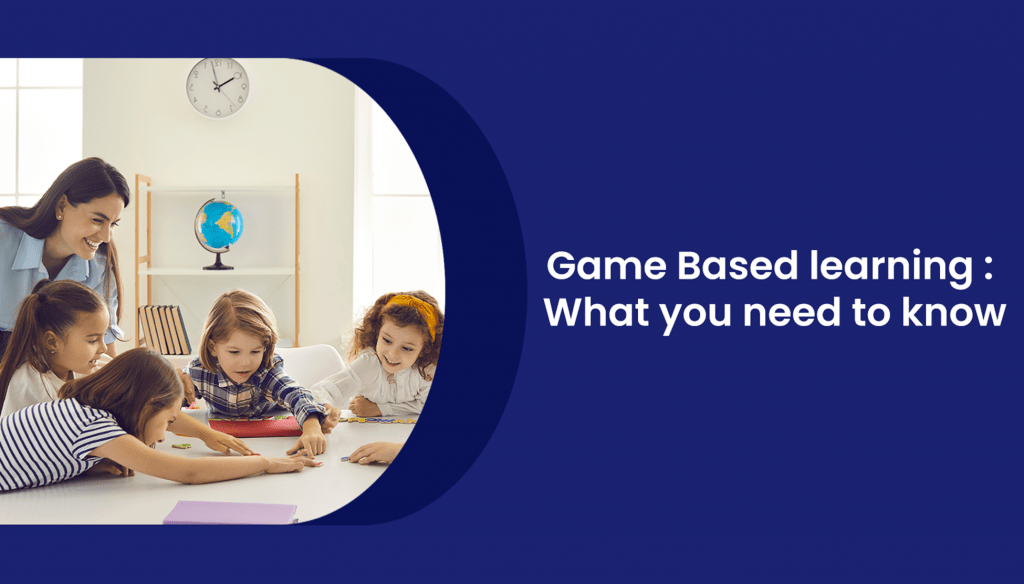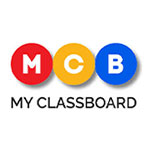Game Based Learning is a type of learning where the students are actively engaged in playing games for the purposes of education. These games are designed to teach concepts, skills, and knowledge to students in a fun and interactive way. It is an effective method of teaching because it engages students in a way that traditional teaching methods cannot. In this type of learning, students are more likely to retain information than if they were only sitting in a classroom listening to lectures. Game Based learning provides a way to motivate and engage students, as well as offer them an alternative way to learn. In this blog, we will explore how Game Based Learning is changing the face of education. We will discuss the benefits of game-based learning and how it can be applied in different settings, including classrooms, homeschools, or even outside the school system altogether.
According to Educause, gaming may generate a rhythm that inspires students to acquire knowledge and skills while focusing on the game's activities. They can:
- act as independent learning activities
- a robust content delivery method that spans several sessions
- last the length of the course
Game-Based Learning is a straightforward method that may be used in the classroom (GBL). The outcomes of implementing this teaching technique have demonstrated that including games is extremely successful since they may enable and boost student enthusiasm. According to EdTechReview, Game-Based Learning is meant to balance subject content with gaming and the capacity of the user to recall and apply this subject matter to the real world.
Many of us get confused with game -based learning and gamification. The definition of game-based learning is simple and straightforward: it is an educational method that teaches topics through games and physical activities. Game-based learning is intended to teach certain abilities. Gamification, on the other hand, is a little more complicated than game-based learning. To obtain the intended learning effect, game mechanics must be used in a different (non-game) environment.
Benefits of Game - Based Learning:
- Game-based learning offers several substantial educational benefits. These benefits are not just advantageous to students; they also help a teacher's work easier. Here are a few perks of game-based learning.
- Because it employs the rule of repetition, game-based learning promotes retention. A youngster will replay a gaming level until they complete it, and while doing so, a child develops memory and retention abilities. More significantly, the game's underlying premise stays with the youngsters, assisting them in succeeding faster in the future when they encounter similar challenges.
- It improves a child's memory capacity. Games frequently center on the use of memory. This does not just apply to games in which children must remember things in order to solve the game, memorize important sequences, or follow narrative pieces.
- GBL helps improve skill-building. Many games have elements that assist youngsters in developing various abilities. Many mystery and adventure games, for example, have maps that children must read. This certainly improves their map reading and practical thinking skills. There are also games, such as football management games, that teach youngsters about managing budgets and overall project management.
- It encourages dialogues about topics, allowing youngsters to have a fresh fun-based subject to discuss in every lesson.
- GBL Assists in problem-solving, Game-based learning may assist kids in problem solving by building abilities such as comprehending causation, reasoning, and decision making that they can apply outside of school.
- Because familiar technologies are employed in the process, lessons laced with games and exercises facilitate learning. The more time a youngster spends on their tab studying a subject through games, the simpler the concept gets for comprehension.
Drawbacks of Game - Based Learning:
Game-based learning, like everything else, has drawbacks. The disadvantages of game-based learning are comparable to those of children who will get to play a lot. Here are a few disadvantages of game-based learning:
- It may provide youngsters with excessive screen time.
- Game-based learning can be addicting, leading a youngster to refuse to learn in any other way.
- Its simplicity might lead teachers to believe that this method should replace traditional learning, while in fact it should be used in addition to it.
Types of Game - Based Learning:
1.Digital Game Based Learning:
Digital game-based learning entails using gadgets to play games that are frequently associated with educational themes that a teacher desires students to understand. Because digital devices are widely available, digital game-based learning platforms are the most accessible. A youngster, for example, will discover what words sound like, how to pronounce them, and also what they mean on a word game-based learning platform. Teachers will frequently use obstacles in those online gaming when assigning homework to students.
2.Puzzle Games:
Puzzle games need extensive use of critical thinking and logical reasoning. Sudoku and other math puzzle games require that you hunt for clues, conduct calculations, and grasp sequences in order to achieve the correct solutions. Similarly, there are word puzzle games where the solutions are hidden in riddles and questions that you must comprehend and answer. You can incorporate these puzzles into your school's curriculum. Depending on the course, you can have students complete puzzles based on key concepts in your subject. While having fun, the method will assist pupils learn things that would have taken you a long time to explain in class.
3.Traditional Game Based Learning:
Traditional game-based learning, which evolved before to digital game-based learning, has been overtaken by technology in some way. In the classroom, this learning technique employs traditional tasks to teach youngsters educational ideas. Many adults recall playing games as children in order to learn arithmetic formulae, English pronunciation, and other skills. Traditional game-based learning is preferred by most instructors in the classroom as it is less disruptive and more interesting.
4.Board Games:
Board games need focus and critical reasoning. Monopoly and Business, are some of the examples of board games, in which a game that involves chance and astute financial decision-making that may have an impact on the player's in-game progress. It teaches money, addition, subtraction, and counting principles. Board games are ideal for circumstances in which a teacher wants to guide each kid. There are several board games that may be used for game-based learning; this is not an entire list.
Vikas The Concept School is a world-class facility dedicated to preparing children to be future leaders. We provide concept-centered and comprehensive education using a developmental approach. Our educational environment promotes order, independence, a love of learning, a sense of belonging to the world, and a sense of social responsibility. We at Vikas Concept School, understands how important the games are in students life and even education is. But these days students are more interested in playing than education, keeping this in mind, Vikas the Concept School has introduced a new method of learning (Game-Based Learning) into our curriculum. And we encourage our students to participate in all kinds of games which can help them in better understanding. Just click here to know more about Vikas The Concept School or call us for a quick enquiry.















